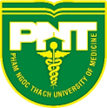Introduction In the age of information overload, the battle against health misinformation has become increasingly vital. The key to winning this battle lies in enhancing health literacy and fostering effective health communication. This blog explores the critical role of health literacy in discerning accurate health information and the importance of effective communication strategies in mitigating the spread of misinformation.
Understanding Health Literacy in the Digital Era Health literacy, once confined to understanding basic health information and services, now extends to the ability to sift through a vast array of online information. In the digital age, it involves discerning credible sources, understanding scientific evidence, and making informed health decisions amidst a sea of potentially misleading information.
The Rise of Health Misinformation The internet and social media have enabled rapid dissemination of health information, but not all of it is accurate or reliable. Misinformation can range from harmless myths to dangerous falsehoods, leading to poor health choices and risks to public health.
Strategies for Effective Health Communication Effective health communication is essential to combat misinformation. This involves clear, accurate, and timely messaging from trusted healthcare professionals and organizations. It also includes educating the public on how to critically evaluate health information sources.
Empowering Individuals through Health Literacy Empowering individuals with the tools and knowledge to navigate health information critically is essential. This includes teaching skills to evaluate the credibility of sources, understand scientific terms, and recognize the signs of misinformation.
The Role of Healthcare Professionals and Media Healthcare professionals and media play a pivotal role in disseminating accurate health information. They must be equipped to address misinformation and provide clear, understandable, and evidence-based health advice.
Collaborative Efforts to Combat Misinformation Combating health misinformation requires a collaborative effort between healthcare providers, educators, policymakers, and the media. Creating public awareness campaigns, integrating health literacy in education, and implementing policies to regulate health information on digital platforms are vital steps.
Conclusion In conclusion, enhancing health literacy and effective health communication are indispensable tools in the fight against health misinformation. By empowering individuals to make informed decisions and ensuring that accurate information is readily available and understandable, we can create a more health-literate society capable of navigating the complexities of health information in the digital age. As we move forward, the focus must remain on collaborative efforts to foster an environment where truthful, science-based health information prevails.
